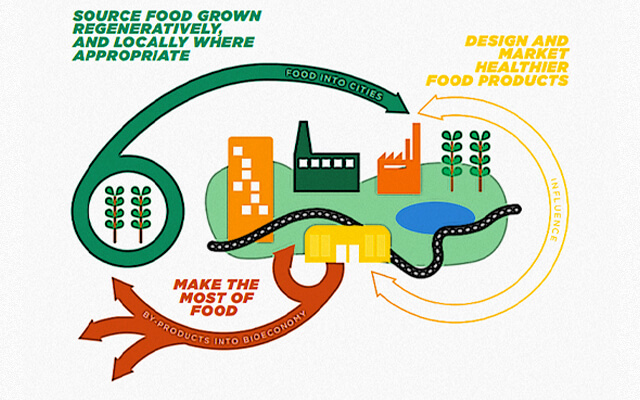EU Sustainable Food System Innovation Platform
By: Dario Dongo – Andrea Adelmo Della Penna 07/07/2023
From: GIFT (Great Italian Food Trade)
The synergy between different research projects, in the framework programmes Horizon 2020 and Horizon Europe, made it possible to establish the Sustainable Food System Innovation Platform. With the aim of sharing the innovations developed both in the context of European projects and in other contexts (i.e., operators, supply chains, universities and research centres). (1)
Sharing data e.g., know-how on the SFS Innovation Platform responds to the interests of operators in the agri-food chains (i.e., primary production, processing industry, distribution), but also of stakeholders (policymaker, technological providers, civil society). In an Old Continent where innovation is more necessary than ever.
1) SFS Innovation Platform
SFS Innovation Platform was developed as a result of the project SMARTCHAINS (2) and continued thanks to the synergy of two sister projects still ongoing, in the area ‘Innovative agri-food supply chains: enhancing competitiveness oriented towards sustainability’:
- CO-FRESH re-designs and promotes innovative systemic approaches in the value chains of European agri-food chains, (3)
- FAIRCHAIN develops innovative models of sustainable development in value chains that integrate local and international food supply chains. (4)
The registration on the platform is free. Registered users can access archives and databases, training via e-learning. With the possibility of sharing initiatives and proposing activities of networking, under the banner of sustainable development in the agri-food chains.
2) SFS, management
Sustainable Food System Innovation Platform is managed, updated and developed also thanks to the collaboration with three other EU research projects which are in turn dedicated to sustainable development – on three economic, social and environmental fronts – in the agri-food chains:
- EU4ADVICE. Promote sustainability models in short agri-food chains (Short Food Supply Chain), by making operators and consumers responsible (#sdg12). Also, to implement AKIS (Agricultural Knowledge and Innovation System) nationwide. (5)
- corenet. Follow up of the project SKIN, corenet the development of a consultancy system on the subject of Sustainable Food Systems, through P2P training services (peer-to-peer) at European level. (6)
- WASTELESS. Key project in the prevention and reduction of food loss and food waste (FLW) throughout the agri-food chains, also in synergy with the sister project FOLOU. instead focused on the reduction of FLW in primary agricultural production. (7)
3) SFS, contributors
Three more projects funded in Horizon 2020 provide content and participate in the focus of the priorities of the SFS Innovation Platform:
- FOODRUS. Promotion of circular economy and reduction of FLW with focus on three supply chains (vegetables, meat, fish and bread) where the effectiveness of a mix of 23 technological, social, financial, managerial, educational, legal and political solutions are tested. (8)
- LOWINFOOD. Sister project di FOODRUS, involves similar food chains (fruit and vegetables, bakery products, fisheries), including consumers. To create value chains with low food waste, lower environmental impact and greater socio-economic functionality. (9)
- PLOUTOS. Innovative information and communication technologies are tested on 13 pilot projects. Their results are disseminated through the Ploutos Innovation Academy, to facilitate its replication in different production contexts. (10)
4) GAIN model
The GAIN model aspires to promote collaborations between protagonists and stakeholders of the Sustainable Food Systems on 4 levels of territorial extension (local, regional, interregional/national, international). These synergies have allowed and/or are allowing to:
- share value-add models (based on data, money, authority, tools, expertise and contacts) in a network of hundreds of E-commerce of local products,
- enhance social engagement and networks to reconnect consumers and farmers,
- apply the technology blockchain to models of business inspired by SDGs (eg water recovery, carbon capture, food as medicine, etc.),
- promote the widespread adoption of innovative technologies, by early adopting‘ at the ‘early majority‘.
5) SMARTCHAIN Innovation Hubs
9 Innovation hubs of innovation and collaboration were established, from the beginning of the project SMARTCHAINS, in as many countries of the Old Continent. France (ACTIA), Germany (UHOH), Greece (UOC), Italy (UNIBO), Holland (AMP), Serbia (UOB), Spain (AZTI), Switzerland (WBF), Hungary (KIS). With the aim of strengthening co-creation and collaboration between the partners and ensure a flow of information within the SMARTCHAIN consortium.
– In Innovation hubs a series workshops are organised in collaboration with farmers’ associations, small and medium-sized food businesses and consumers. With the objectives of generating quantitative data and evaluating the different models of sustainability in the short supply chain, through 18 case studies.
6) Education and training
A section from SFS Innovation Platform is dedicated to training and includes courses prepared and delivered by ISEKI-Food Association, which is a partner of SMARTCHAIN, FAIRCAIN, EU4ADVICE and WASTELESS. With the aim of promoting the dissemination of the solutions identified in the various projects and adapting them to other geographical and productive contexts.
7) Provisional conclusions
Innovating the agri-food chains under the banner of sustainable development and the equitable sharing of benefits in the value chains, in the European Union is as necessary as it is difficult, above all due to regulatory obstacles:
- legislation is still partly entrusted to EU directives, especially in environmental matters with the consequent fragmentation of rules and bureaucracy,
- the regulatory ecosystem of the Old Continent still presents a series of obstacles to innovation, which are added to extraordinary burdens when it is necessary to resort to authorization procedures at EU level. (11)
The sharing of experiences and knowledge, in a perspective of open innovation appears to be the best way to tackle these obstacles and overcome the diversity of social and cultural factors that underlie them.
Dario Dongo and Andrea Adelmo Della Penna
Footnotes
(1) See https://www.smartchain-platform.eu/en
(2) See https://www.smartchain-h2020.eu/
(3) See https://co-fresh.eu/
(4) See https://www.fairchain-h2020.eu/
(5) See https://www.eu4advice.eu/
(6) See https://shortfoodchain.eu/
(7) See https://folou.eu/
(8) See https://www.foodrus.eu/
(9) See https://lowinfood.eu/
(10) See https://ploutos-h2020.eu/
(11) See Dario Dongo, Andrea Adelmo Della Penna. Horizon4Proteins. Protein research compared with EU policies and rules. GIFT (Great Italian Food Trade). 21.5.23

